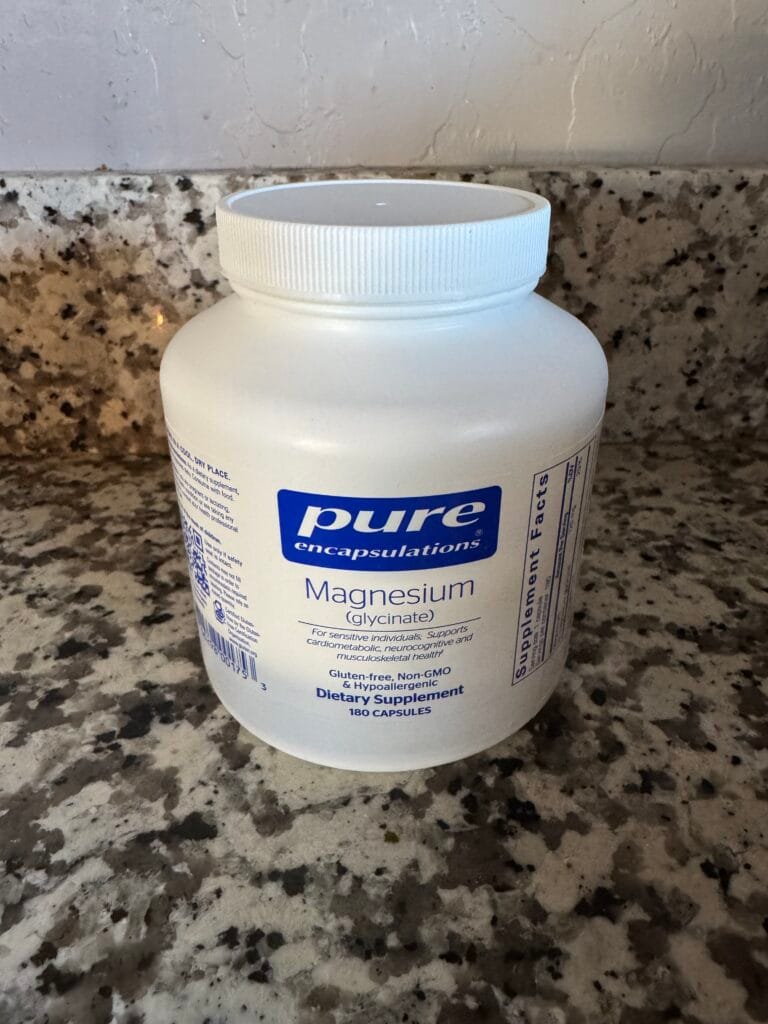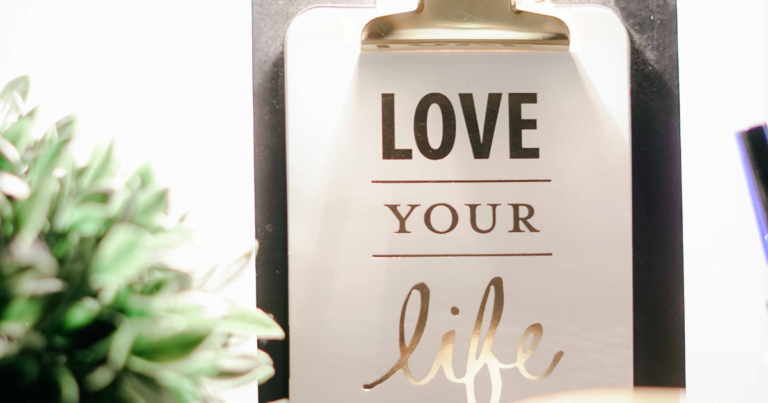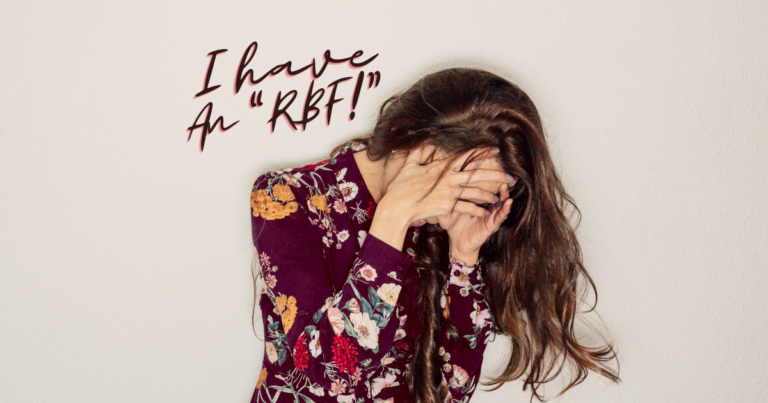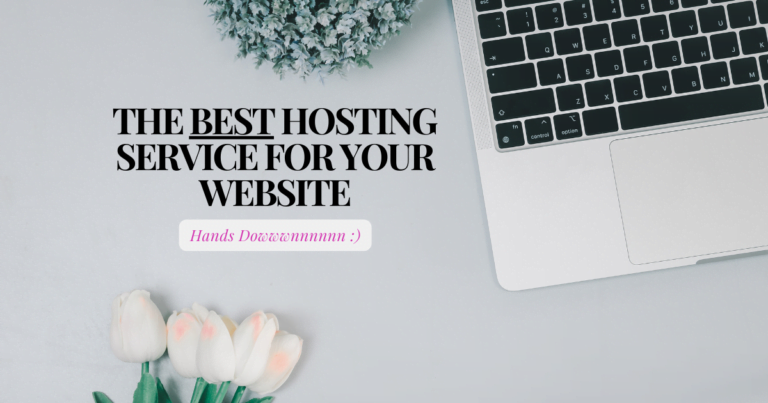**This post contains affiliate links. As an Amazon Associate I earn from qualifying purchases. By clicking on a link and making a purchase, I may earn a commission at no extra cost to you. This helps support my blog and my little family. Thank you SO much for your support! For more details read my disclaimer here.**
Hey there! I’m so glad i’m not alone in my search for some natural ways to manage anxiety, stress, and even depression! Thanks for reading and don’t forget to leave a comment below if you find anything helpful in this post. 🙂
Why Finding Natural Ways To Manage Anxiety, Depression, And Stress Was Important To Me
Becoming a mother brought with it all the beautiful and wonderful aspects you can imagine.
Unfortunately, however, it also brought with it some not-so-great aspects such that I now seem to struggle with more intense anxiety, depression (with postpartum especially), and stress that I hadn’t quite experienced before.
Because of this, I wanted to write an informational blog post on how I manage my anxiety and depression, without medication!
Anxiety and depression, and let’s not forget stress, are intricate mental health conditions that can impact every aspect of our lives.
I had my fair share of experiencing symptoms of each of these (although I can now say those experiences were minor compared with what I now know they can be) but it wasn’t until I became a mom, specifically after my second baby, that they became almost a daily battle.
Like many, I turned to my doctor and admitted to these feelings at my follow-up postnatal appointments. And without really going too deep with their follow-up questions, I was immediately prescribed an anti-depressant.

Sadly, the medications didn’t work as intended.
So my doctor prescribed another kind. Then another… well, after the third attempt, I was (and still am) hesitant to try another.
My experiences with antidepressant and anti-anxiety medications were frankly, scary. So, I felt like I needed to look into other methods for help.
Taking medication can be a valuable tool for managing symptoms for many people, but if you’re similar to me, maybe you’re a little afraid to venture down the path of prescribed medications as a way to heal. At least without trying other methods first…
Whatever your reasons are, I’m happy to say there are things that I’ve tried -all of which are listed in this blog- that have actually helped me.
So maybe they can help you too!
And before anyone feels they need to defend the fact that prescription medications can help – I am in no way using this blog to discourage or discount that these medications do work for many people, it just hasn’t been the case for me.
I do have to admit that I also prefer to do all I can from a more holistic approach in many areas of my life. So I’m kinda surprised I jumped right into my doctor’s advice to medicate before looking into other options first, but I’m grateful I did in a sense, so I know I actually tried multiple options before saying what has helped or not.
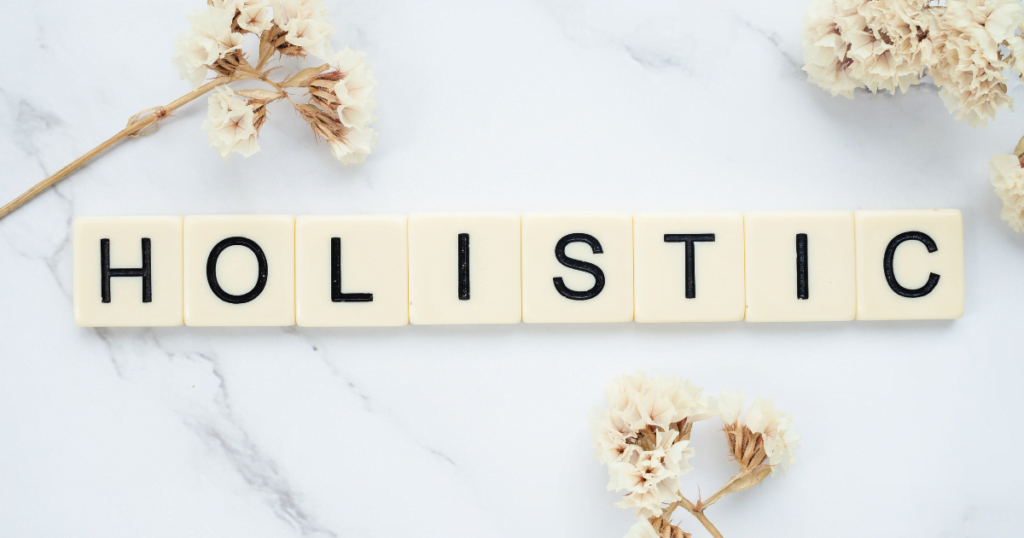
I’m also not against trying again if it comes down to it, but I’m hesitant to do so, to say the least.
Thankfully, for now, I can say that the methods I outline in this post have so far been a great help in managing my mental health.
It hasn’t taken it away completely but I do feel grateful that I have things I can do to help myself when I need it.
So with all that said, many of you reading this may be people who have, like me, wondered what they can do to try and manage their anxiety and depression on their own.
The information below are things I’ve actually done and continue to do so I can confidently say they work for me and can work for others. Especially some of the aromatherapy and supplements I recommend later on!
Some of these methods have really brought me down to earth in times of an emergency.
***I am not a doctor, and this blog post is my opinion only. Please know that I am not making any formal or professional recommendations and you should always consult your doctor before trying or implementing anything new especially if you’re currently taking any prescribed medications.***
In this blog post, I want to explore some holistic approaches to anxiety and depression management.
I focus on lifestyle changes, self-care practices, and therapeutic techniques that can help to promote healing and a better sense of well-being, without relying on medication.
First things first:
Understanding Anxiety and Depression
Before I fully dive into some tried tips and strategies to manage anxiety, stress, and depression without medication, I want to stress the importance of understanding what these conditions are and how they can affect us.
I’ve dealt with depression in one form or another pretty much since I can remember.
I can’t really say why, but I do have memories from childhood where I was told how unhappy I looked, and that I needed to work on smiling more.
Related: Decoding The Dreaded RBF: AKA “Resting Bitch Face” | This May Surprise You!
Well, this may have just been something “put” on me, and who knows, maybe that messed with my head in a way to convince me on a somewhat unconscious level that I wasn’t capable of being happy.
Who knows.
But I did tend to walk around with what I describe as a broken heart feeling, and I could rarely pinpoint why that was.
Depression can be dangerous, and it can manifest in different ways for different people.
For me, it was often characterized by sadness, a somewhat hopeless feeling, and when it got pretty intense, it would usually turn into apathy.
It’s crazy to say that even with experiencing this in my past: It wasn’t until I personally dealt with postpartum depression, that I could really say I faced the full-on danger aspect of depression.

I had never felt depression before on the same level as I can say postpartum depression made me feel. And I hope to never have to feel that intensity again.
Anxiety is another beast. It’s characterized by persistent feelings of worry and fear, and often this can be felt over nothing in particular.
Stress is a lot like anxiety, but oh man, it’s often a silent monster. It wreaks havoc on our nervous system and can be felt in our bodies even when we’re not aware of it.
Obviously, these conditions have a way to significantly impact our mental, emotional, and physical well-being.
But the good news is there are effective ways out there to cope and even thrive.
8 Effective Ways To Fight Anxiety And Depression Without Drugs
#1 Lifestyle changes for mental health
You may have heard time and time again (I know I have) that making positive changes in areas such as your diet, exercise, sleeping habits, and stress management can have a profound positive impact on anxiety and depression.
Well, it’s true.
- I find that when I focus on being mindful about what I put into my body, my symptoms of anxiety and depression are so much less!
I mentioned in another blog post how I particularly like having something to be accountable to. One of the best programs I’ve tried that provided this accountability was Noom.

For me, it was just the non-forced encouragement of logging what I ate each day (encouraging mindfulness) and the somewhat hobby it provided in having me complete a lesson each day.
Related: Boost Your Self-Worth | 18 Tips For Self-Improvement & Positive Growth
I like to learn, so it was a nice bonus to have something new to learn each day.
- Exercise has scientifically been proven many times to be a method that promotes the release of endorphins, so this is pretty much guaranteed to give you a boost in the mental health department.

I have a love-hate relationship with exercise, especially right now when I’m 8 months pregnant and all I can manage is a short walk. But I know walking is more than sufficient in what I’m talking about here, as it still does the job of increasing my mood and giving me a mental boost.
Then of course we have sleep and stress-reducing techniques.
- Sleep in and of itself is so healing.
So prioritizing a set bedtime, and turning off electronics at least an hour ahead of time, is a great way to promote a deeper sleep and better overall rest.

- As for stress-reducing methods; I find Implementing meditation or relaxation exercises like yoga, or even getting a massage, all go a long way to help support lowering the stress I feel.
#2 The power of mindfulness and meditation
Practicing mindfulness and meditation are powerful tools for managing anxiety and depression.
These methods cultivate an in-the-moment awareness, acceptance, and self-compassion mindset.
There are so many ways available to help you practice these too.
YouTube provides many videos of relaxing music or guided sessions. Then of course there are many apps you can use now too – like Calm.
#3 Cognitive-Behavioral Therapy (CBT) Techniques
This approach to managing anxiety and depression involves identifying and challenging negative thought patterns or behaviors.

You can find many methods to implement in this area, but I find that journaling and using affirmations every day help me.
#4 Creative Expression and Self-Discovery
Engaging in creative expression and self-discovery can be a powerful form of therapy.
Creative expression allows us to explore and process our emotions and thoughts in a safe and supportive environment.
Make time for things you enjoy to express some creativity.
For me, I like to listen to music and create mood boards, as well as keep a journal like I mentioned above.

There are many avenues you can explore here though. Some of these are:
- painting
- drawing
- writing
- dancing
And many more…
The process of finding what resonates with you is a great way to positively discover yourself.
#5 Connect With Others and Foster Supportive Relationships
I’ve found connecting with others to be vital.
Having a supportive community, even a small one, can provide so much value to our lives.
Not only can you have a place to give and receive emotional support, validation, and encouragement, but being around others who are a positive influence can be so healing.
#6 Practice Gratitude
Focusing on gratitude promotes resilience and helps to shift our mindsets from the negative to the present moment by forcing us to acknowledge the good we have in our lives right now.
Even when I’ve found it so hard to feel grateful for anything, it’s something you can challenge easily because there’s ALWAYS something you can think of that you’re happy about.
For me, the first one is always “I’m grateful for my kids” and then, “I’m grateful for my husband”, and by saying just these two, my mind just naturally starts bringing up more things that I’m grateful for.
Practicing affirmations with the words “I’m grateful” is a great way to practice this too.
And once again, journaling is an amazing way to write down and have a visual of the things you’re grateful for.
#7 Seek Professional Help and Treatment Options
Self-care practices and holistic options are my go-to, but sometimes we may still need a little more help. And that’s okay.
Talking to a professional (someone who has an unbiased approach to your life) can be a great way to just get it ALL out in a safe place. The good and especially the bad.
There have been times when I really need that ugly cry-it-out session. Somewhere I can just dump.
It’s only after getting the emotions just up and out that I’ve been able to see ways to move past some of my problems with a healthier mindset.

But maybe you’re like me and are turned off by the suggestion of “get a therapist”…I get it.
One of the things I really hated to hear when I needed help the most was “Talk to a therapist.”
Why? Because in those dark times, I had no idea, nor did I want to figure out, how to go about finding a therapist to talk to!
It was a vulnerable issue I had to face. When I was in ultimate survival mode, having anything else added to my plate such as finding a therapist was just too much.
Well, I eventually felt it important enough to do something about it but maybe some of the suggestions below can give you a step-up in this area.
How to get a therapist:
- So the first thing you need to do if you want to find a therapist is to call your insurance provider and see what they will cover in your area.
Even better, is there are many apps now like Better Help available where you can talk to someone from the comfort of your own home.
Depending on the insurance you have, these mental health apps may even be covered.
- Many employers have programs that offer a couple of free sessions too, so make sure to talk to your benefits person (even if it’s your spouses).
There are many methods out there now making it easier to get the help you need.
- If you don’t have insurance, then either google or ask around for suggestions on what therapists practice in your area. Facebook can be a great tool for this.
- When first establishing contact with a therapist’s office, be sure to ask if there are payment plans offered. You’d be surprised at how many might say yes or even be willing to work with you because you’re honest about your situation.
It may feel daunting, but you may find it to be the best decision you’ve ever made. Or, at the very least, a learning experience.
Also, I find it helpful to remember that beyond talking to a therapist, there are many other “therapy” options that also really help.
These are:
- acupuncture
- chiropractic work
- and massage therapy.
Don’t think of therapy just being one thing – there are lots of therapy options and it can be great to implement more than one therapy option at a time.
#8 Aromatherapy and Supplements
Probably my favorite!
My biggest help to set my days up for better success is taking a whole-foods multivitamin and mineral supplement every morning.

I make sure to take vitamin D – especially in the winter months. And have a magnesium blend supplement to help with the absorption of these supplements.
There’s lots of research out there on the benefits of vitamin D and magnesium being crucial, and I’ve found this to be true for me.
I’ve found some fantastic “instant” relief options in using these supplements and essential oils.
When I have a particularly bad day, or my kids are just being extra in the difficult department, I run to my kitchen and make myself a glass of calm.
Magnesium is essential for me and I love that it works quickly to give me a sense of calm (hence it’s name I suppose) when I need to reframe my mindset.
After drinking my calm, I typically also rub some Lavender, Stress Away, and Peace and Calming on my hands, the back of my neck, then I breathe it in. Essential Oils are probably one of my favorite natural remedies for anxiety.
Lavendar Essential Oil that I LOVE!
Stress Away – This smells AMAZING!
Peace & Calming Oil.. It really does work!!
I swear. It works whenever I need to ground and recenter. It’s my magic.
A common question I’ve seen: Can Vitamin D and Magnesium Really Help Treat Anxiety? Well, if it wasn’t obvious by my raving above, my answer is YES.
Here’s a list of some of my favorite supplements:
Natural Vitality Calm – Comes in multiple flavors *Be sure to follow instructions and build up your tolerance, it can cause diarrhea if you take too much 😉
Tangy Tangerine – Multivitamin and mineral in one!
Osteo-Fx Calcium – Tastes like a pina-colada!
Young Living Ningxia Red – A good antioxidant supplement for Digestive Health
Vitamin Code D3 – Vitamin D
Magnesium Complex – A good blend of 5 forms
You don’t need to take all of these together of course, it’s just some of the ones I really like and have cleaner ingredients. The Tangy Tangerine itself is packed with tons of vitamins and minerals, so using that alone with magnesium, calcium, and vitamin D has done wonders for me.
Here’s a list of my favorite essential oils:
Young Living Peace and Calming or Peace and Calming II – I adore this one so much
Young Living Stress Away – Love, love, love the smell of this blend!
Young Living Thieves – Great for overall health
Young Living Joy – as the name suggests, it’s a great oil that promotes Joy
Young Living Acceptance
Young Living Gratitude
DoTerra Balance – Grounding Blend
DoTerra Cheer
DoTerra Citrus Bliss
I honestly love all of Young Living Essential Oils as it’s the OG for me, and personal preference. But of course DoTerra is a great option too. As is Melaleuca’s line of Pure Essential Oils. Each of these companies have really good quality oils.

I’m sure there are some less expensive options out there, but I found that the quality of the oil really matters. The quality is always spot on with the brands mentioned above.
Conclusion:
Anxiety and depression are complicated conditions but thankfully there are many ways we can healthily combat these problems.
For me, what’s really helped is incorporating lifestyle modifications, mindfulness, and meditation, having supportive relationships, practicing gratitude and affirmations daily, using my aromatherapy and supplements, and then when needed – seeking professional help or treatment options.
It’s important to remember that healing is a journey and that it’s okay to ask for help or support along the way.
When actively nurturing our mental well-being with dedication and patience, we can find that there are ways to overcome anxiety and depression and that we really can live a life filled with joy, purpose, and resilience.
What methods have you tried to manage your own anxiety, depression, or stress? I’d love to have you share your experiences! Or anything else you want to add 😉

Drop a comment below!

